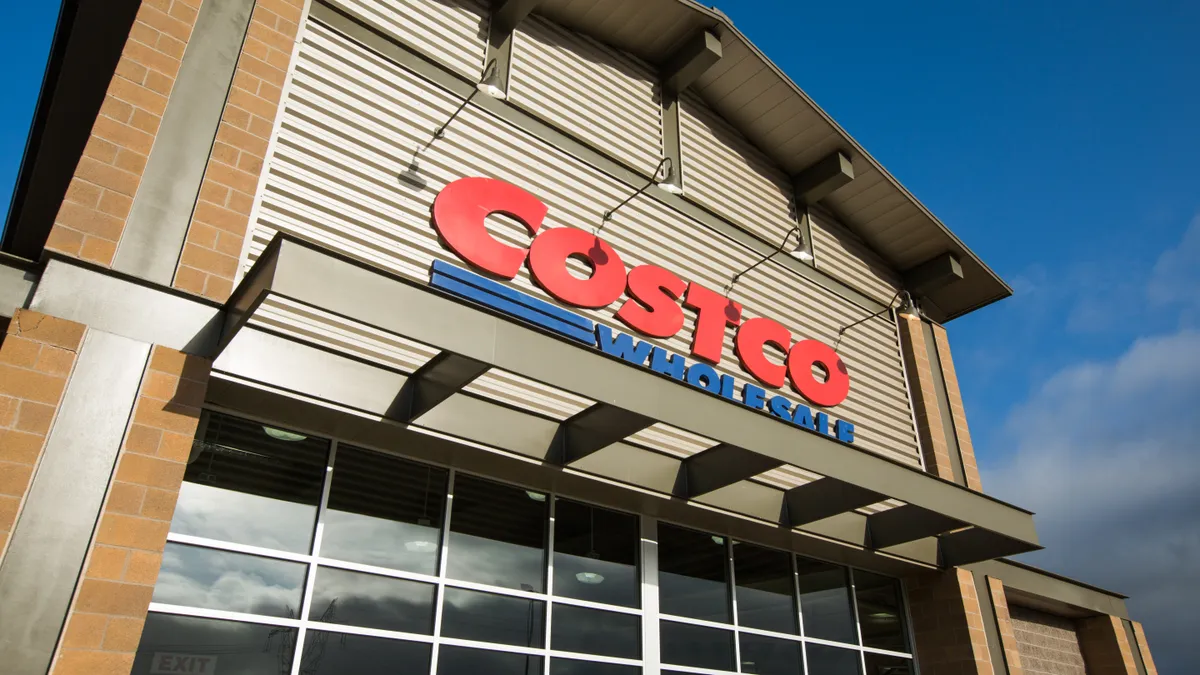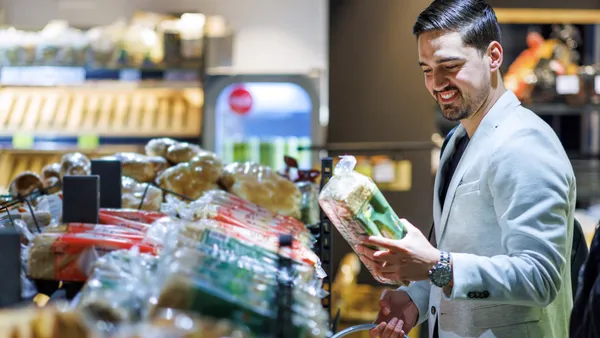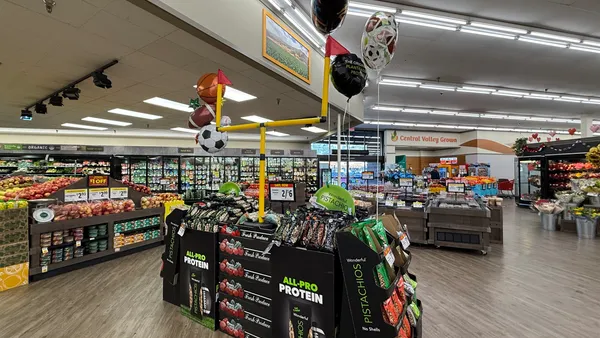Dive Brief:
- Customers who buy Costco’s rotisserie chicken and Trader Joe’s cauliflower gnocchi shop more frequently and spend more at each retailer, according to new data from market intelligence firm Numerator.
- The data found 33.2% of Costco shoppers buy the retailer’s rotisserie chicken, and those same customers shop Costco 1.7 times more frequently than others. Costco also holds a 22% grocery share of wallet among rotisserie chicken buyers, versus 15.1% among average Costco shoppers.
- At Trader Joe’s, the 6.1% of customers who buy cauliflower gnocchi shop at the retailer 2.2 times more often than other Trader Joe’s shoppers. Those who buy cauliflower gnocchi also spend 10.6% of their grocery dollars with the grocer, while the average shopper spends just 4.6%.
Dive Insight:
Numerator's data underscores the outsized impact signature products and private labels can have on store sales.
Baskets containing Costco's rotisserie chickens are $25 larger than other average baskets, the firm found. Trader Joe's cauliflower gnocchi enthusiasts, meanwhile, are higher income and more likely to be gluten-free and seek natural, organic products. They’re also likely to focus on healthy eating and are willing to pay a premium for organic goods, the firm noted.
Securing these products isn't always easy. Costco pays a hefty price to keep its rotisserie chickens in-stock and priced low at $4.99. The company operates its own poultry production complex in Nebraska. Trade Joe's sources its cauliflower gnocchi from Italy yet prices it at just $2.69 per 12-ounce bag.
However, both items are drawing high-value shoppers who spend more throughout the store. To further boost sales, Costco places its rotisserie chickens at the back of each store to increase traffic through the aisles, Numerator noted in its report.
"Other retailers should pay particular attention to the placement of their hot-ticket items; if done correctly, they may be able to draw their most loyal shoppers to areas of the store they don’t typically frequent," the report said.
All told, Costco’s Kirkland Signature brand drove more than $39 billion in sales last year, making up a third of all sales, while Trader Joe’s private label products make up 80% of the store’s inventory.
Grocers across the country are promoting their own signature products. Publix, for one, just came out with a line of merchandise featuring its popular Pub Subs. Others are expanding their private label sets, most notably Target, which just launched its Good & Gather grocery line, and Kroger, which is rolling out a collection of plant-based products under its Simple Truth brand.














